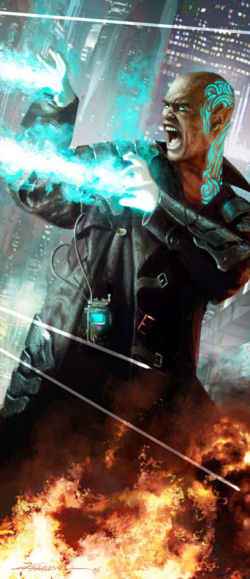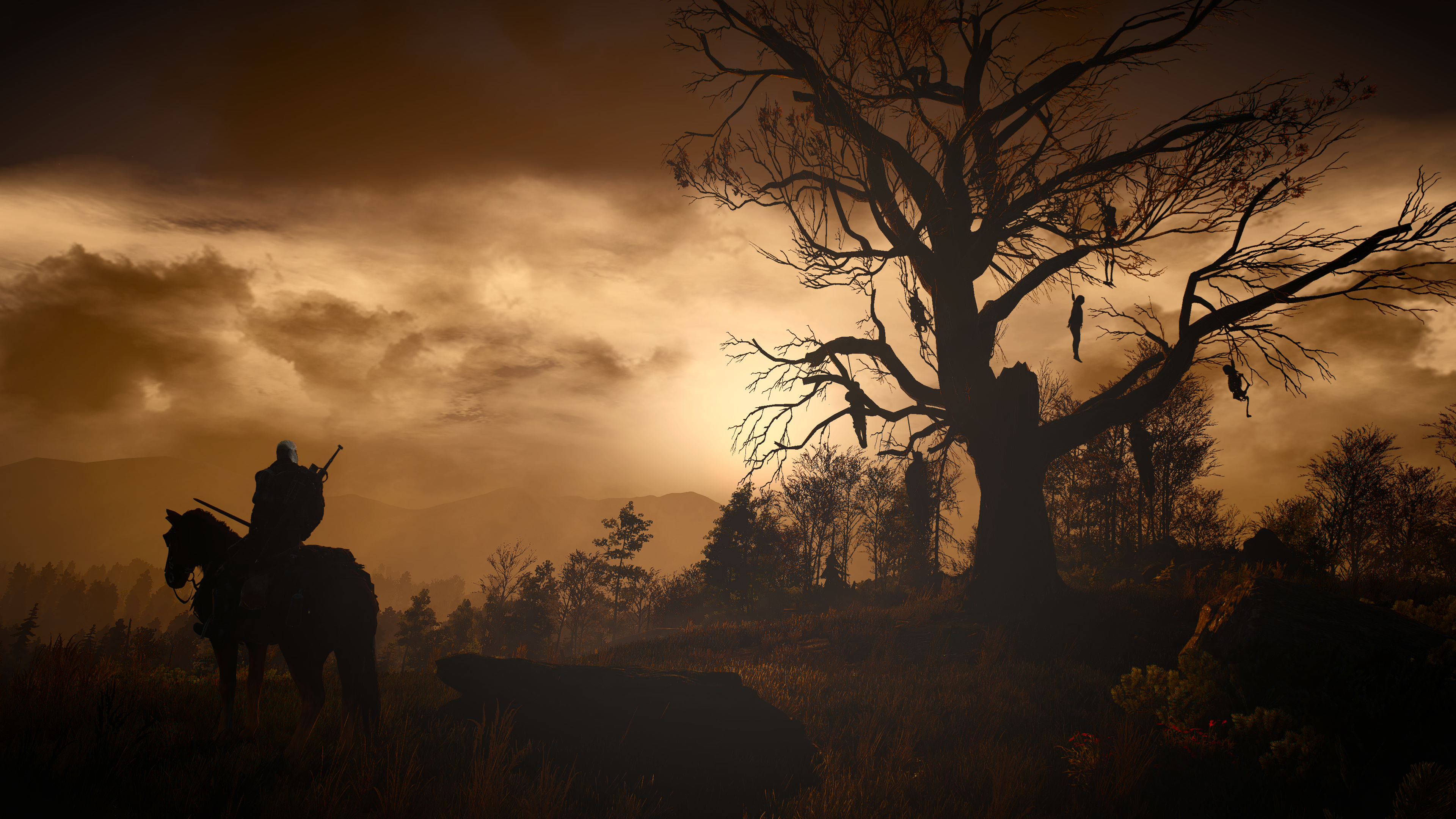Trying to stay true to Shadowrun Third Edition as much as possible, one of the things we’d like to implement in Shadowrun: Corrosion are lifestyles, allowing you to purchase and maintaining a lifestyle that benefits your character in different ways. There’s a wide spectrum of lifestyles, much like in Shadowrun and they offer an escalating amount of benefits.
Below is a small write up of each lifestyle and the basic setup of what benefits they bring.
Cost: this is the initial purchasing cost of the lifestyle.
Upkeep: this is the daily upkeep cost of the lifestyle.
Social: it’s the penalty or benefits you get to social skill checks (Etiquette, Negotiations, Intimidation, etc.)
Ambush: when attacked in PvP it offers a penalty or bonus in avoiding the first, surprise/ambush round of the fight.
DocWagon: when you fall unconscious due to physical damage you are returned to Dixie’s who patches you up. She takes 10% of your money and your reputation goes down and you’re at 9 boxes of physical. This bonus changes things slightly.
Regeneration: regenerating lost physical health is dependent on your body rating, and can take a long, long time to heal. Regenerating lost stun health is usually quite a bit faster, but is dependent on your body or willpower, whichever is higher. This is a bonus that increases your body/willpower in terms of healing by a particular percentage.
Assets: these are money and influence generating things that a crew can purchase/conquer. Each asset has a legal owner, who gets extra benefits on top of the crew benefits. Because a character needs a solid identity to withstand government scrutiny, the higher the level of the asset, the higher the required lifestyle of the owner.
Street Lifestyle
You will live on the streets — or in the sewers, steam tunnels, condemned buildings, or whatever temporary flop you can get. Food is whatever you are able to find, bathing will be a thing of the past, and your only security is what you create for yourself. This lifestyle is the bottom of the ladder, inhabited by down-and-outers of all stripes. But life won’t be all bad; it will be free!
Cost: 0
Upkeep: 0
Social: +3 (penalty)
Ambush: +3 (penalty)
DocWagon: -10% nuyen, -1 reputation
Regeneration: +0% body/willpower
Assets: character can’t own assets.
Squatter Lifestyle
Life stinks for the squatter, and most of the time so will you. You will eat low-grade nutrisoy and yeast, perhaps adding some flavors with an eyedropper. Your home will be a squatted building, perhaps fixed up a bit, possibly even converted into barracks or divided into closet-sized rooms and you’ll probably share that with other squatters. Or maybe you can just rent a coffin-sized sleep tank by the night. You’ll have the use of a public dataterm, when you can find one that actually works, to call or e-mail anyone, and you might be able to pick up a pirate trid station on the trid unit you found in a dumpster. The only thing worse than the squatter lifestyle is living on the streets.
Cost: 5,000
Upkeep: 500
Social: +2 (penalty)
Ambush: +2 (penalty)
DocWagon: -8% nuyen, -1 reputation
Regeneration: +2% body/willpower
Assets: character can’t own assets.
Low Lifestyle
With this lifestyle, you’ll have an apartment and nobody is likely to bother you much as long as you keep the door locked and bolted. You can count on regular meals; the nutrisoy may not taste great, but at least it’s hot. Power and water will be available during assigned rationing periods. Security depends on how regular your payments to the local street gangs are. When you travel, you’ll ride the tube. You’ll be one among the factory workers, petty crooks and other people stuck in a rut, just starting out or down on their luck.
Cost: 20,000
Upkeep: 2,000
Social: +1 (penalty)
Ambush: +1 (penalty)
DocWagon: -6% nuyen, -1 reputation
Regeneration: +4% body/willpower
Assets: character can own a level one asset.
Middle Lifestyle
The Middle lifestyle offers a nice house or condo with lots of comforts. If you choose this lifestyle you’ll sometimes eat nutrisoy as well as higher-priced natural food, but at least the autocook has a full suite of flavour faucets. You will also have a commuter car or first-class tube pass. You will have a basic vidphone, and subscribe to a few cable channels and a local news screamsheet. This is the lifestyle of ordinary successful wage-earners or criminals.
Cost: 50,000
Upkeep: 5,000
Social: 0
Ambush: 0
DocWagon: -4% nuyen, 0 reputation
Regeneration: +6% body/willpower
Assets: character can own up to a level two asset.
High Lifestyle
A High lifestyle offers a roomy house or condo, good food and the technology that makes life easy. You may not have the same perks as the really big boys, but neither do you have as many people gunning for you. Your home is in a secure zone or protected by good, solid bribes to the local police contractor and gang boss. You will have a housekeeping service or enough tech to take care of most chores, and a luxury commuter car is at your beck and call. This is the life for the well-to-do on either side of the law: mid-level managers, senior Yakuza and the like.
Cost: 100,000
Upkeep: 10,000
Social: +1 (bonus)
Ambush: +2 (bonus)
DocWagon: -2% nuyen, 0 reputation
Regeneration: +8% body/willpower
Assets: character can own up to a level three asset.
Luxury Lifestyle
This lifestyle offers the best of everything: ritzy digs, lots of high-tech toys, the best food and drink, you name it. You will have a household staff, maid service or gadgets to do the chores. You will be likely (and expected) to have a powerful car and a big house, a snazzy condo or the penthouse suite in a top hotel. Home security is top-of-the-line, with well-trained guards, astral security and instant response times. Your holophone is SOTA with all the features, multistation trideo, all satellite and cable channels, and subscriptions to several major newspapers and journals. You’ll be on the VIP list at several exclusive restaurants and clubs, both real and virtual. This is the life for the high-stakes winners in the world of Shadowrun: high-level executives, government big shots, Yakuza bigwigs and the few shadowrunners who pull off the big scores (and live to spend their pay).
Cost: 1,000,000
Upkeep: 100,000
Social: +3 (bonus)
Ambush: no ambush possible.
DocWagon: 0% nuyen, 0 reputation
Regeneration: +10% body/willpower
Assets: character can own up to a level four asset.
Any other bonuses we can tie to lifestyles?


